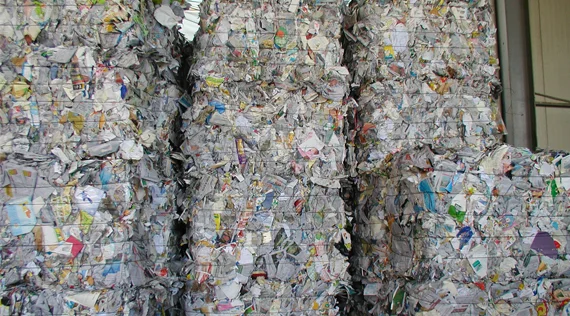
SEATTLE (Scrap Monster): Plastic waste has become a critical global environmental issue and Uganda is no exception. The country generates approximately 600 tons of plastic waste daily according to the National Environment Management Authority (NEMA). Unfortunately, less than 10 percent of this waste is collected and recycled. The rest ends up being burned, in landfills and the environment, including water bodies. This situation presents a significant environmental challenge for Uganda, but also offers a broad range of economic opportunities through recycling.
Littering and waste management are not perceived priorities by many Ugandans. Many people are not aware of the negative impact of plastic waste on the environment and do not appreciate the importance of recycling according to Faith Aweko, the founder of Reform Uganda, a social enterprise that recycles plastics to make fashion accessories.
Another challenge facing plastic recycling in Uganda is the lack of infrastructure and economies of scale. Waste collection in Uganda is dominated by private and informal sectors that lack access to the necessary finances, technology and infrastructure. Informal collectors often lack the necessary skills and knowledge to sort and process plastic waste effectively let alone recycle waste plastic into a viable product.
Despite these challenges, plastic recycling presents substantial potential for the promotion of environmental sustainability and economic growth.
The German government development agency GIZ in cooperation with the Kampala City Council Authority (KCCA) and Coca Cola established the Plastic Recycling Industry (PRI) to boost the collection of waste plastic in Uganda.
The key challenge however is what to do with the plastic that has been collected and converted into plastic flakes. While the PET flakes can be used to produce a range of products including polyester fibres, polyester sheets, strapping or PET bottles, there are no facilities in Uganda that utilize the flakes.
With India and China’s bans on the importation of scrap plastic, Europe and North America are the primary markets. The cost of transportation to the coast for export is an additional cost rendering Uganda’s waste plastic less competitive on global markets in comparison to plastic waste from Kenya and Tanzania.
Recycling plastic reduces the need to import virgin plastic, conserve natural resources and reduce greenhouse gas emissions. Recycling plastic waste reduces environmental pollution by decreasing the amount of plastic that ends up in landfills and water bodies.
Plastic recycling creates employment opportunities for both skilled and unskilled workers in the collection, sorting, processing and marketing of recyclable materials. This in turn helps to alleviate poverty and unemployment rates. There is also potential for international collaboration and investment in the plastic recycling industry, providing opportunity for the transfer of capital, technology and expertise to promote sustainable plastic recycling practices.
The sheer magnitude of these challenges necessitates a multi-stakeholder approach involving cooperation between government, private sector, civil society and international partners as a source of capital and technology to establish a sustainable plastic recycling.
A greater public appreciation of waste management is necessary. With the right infrastructure and support, the establishment of a plastic waste recycling industry has the potential to promote environmental sustainability, foster innovation and entrepreneurship, provide employment opportunities and help facilitate the development of a truly circular economy to turn trash into treasure.
Courtesy: www.monitor.co.ug



| Copper Scrap View All | |
| Alternator | 0.42 (0) |
| #1 Copper Bare Bright | 4.34 (-0.05) |
| Aluminum Scrap View All | |
| 356 Aluminum Wheels (Clean) | 0.82 (0) |
| 6061 Extrusions | 0.72 (0) |
| Steel Scrap View All | |
| #1 Bundle | 360.00 (0) |
| #1 Busheling | 380.00 (0) |
| Electronics Scrap View All | |